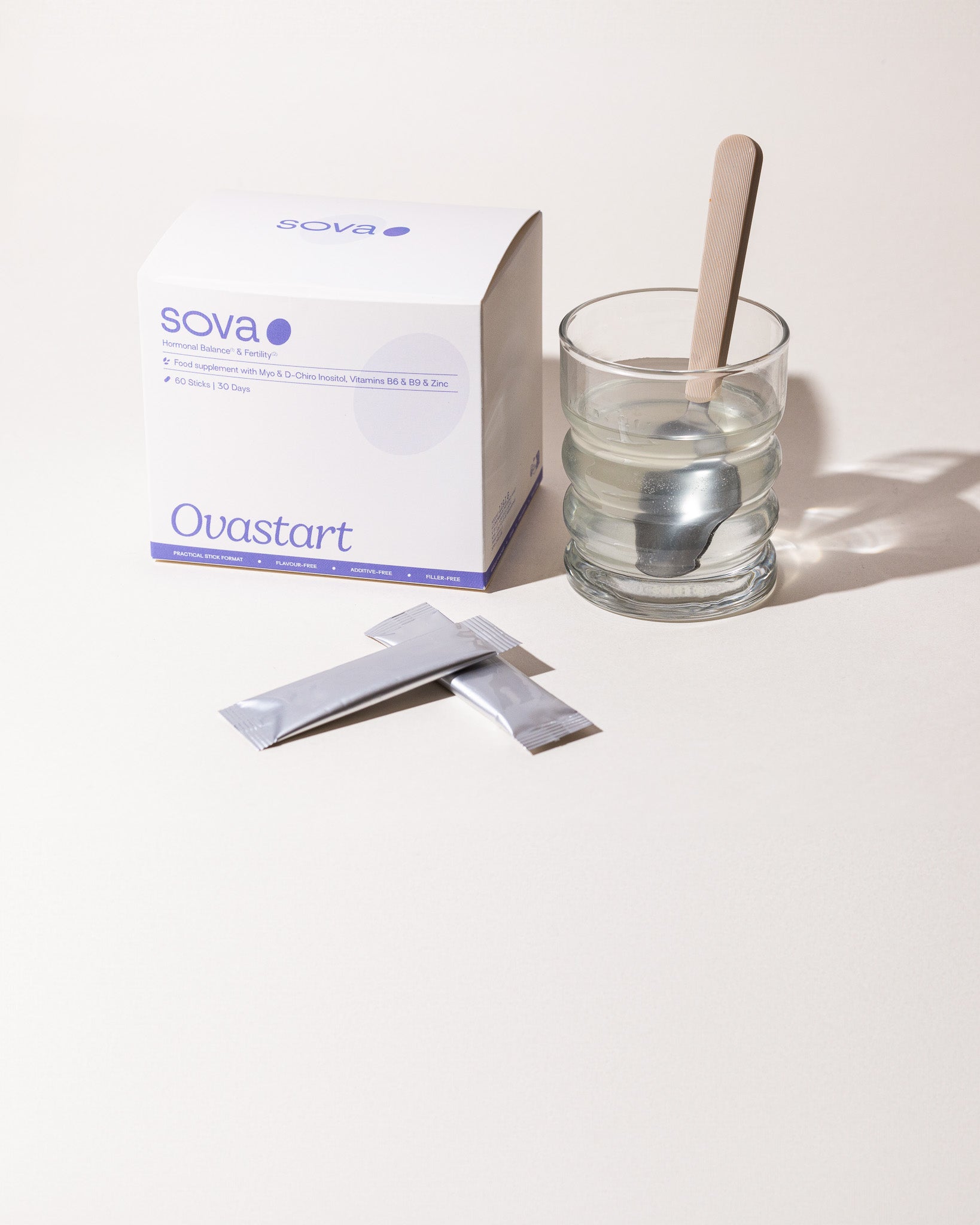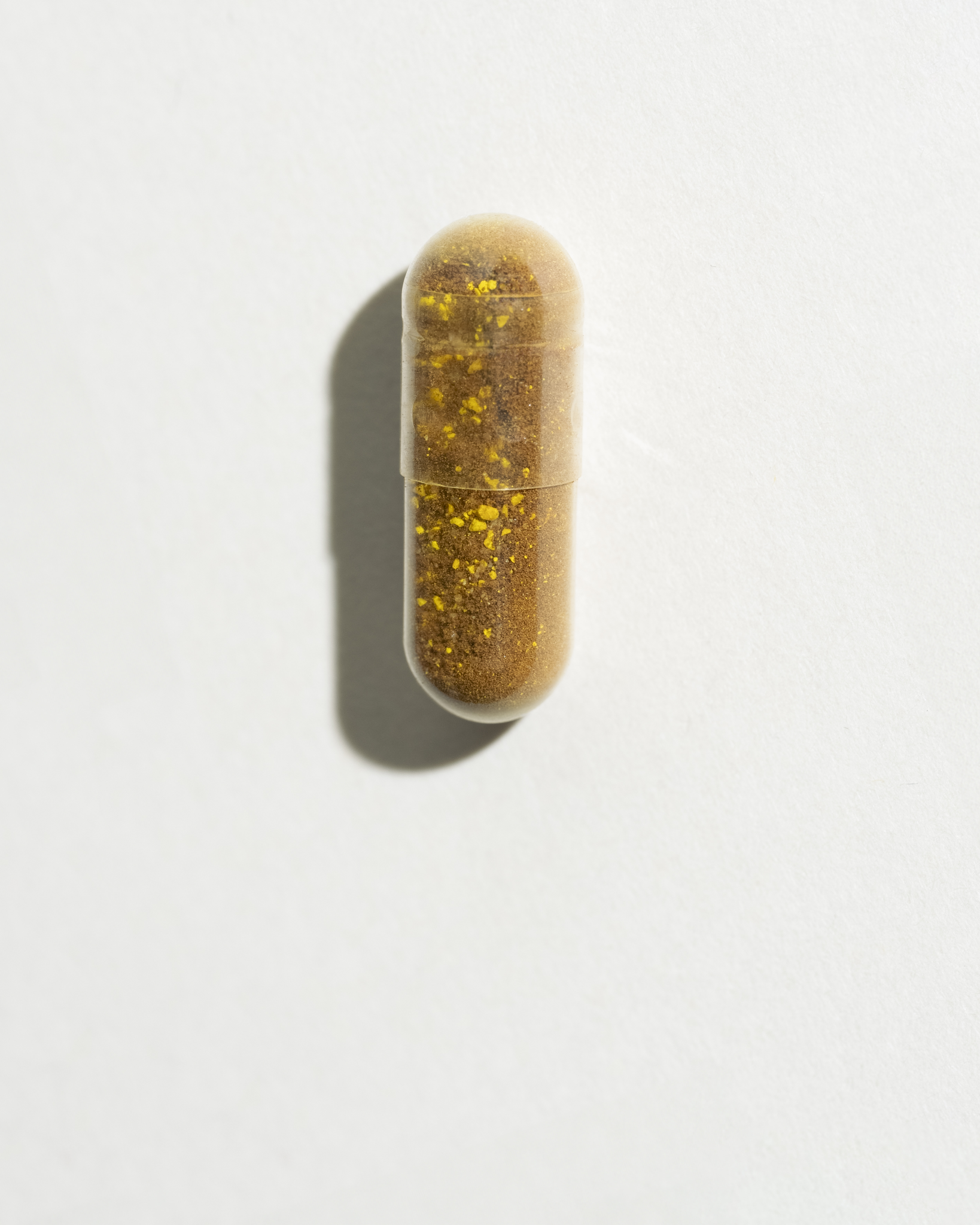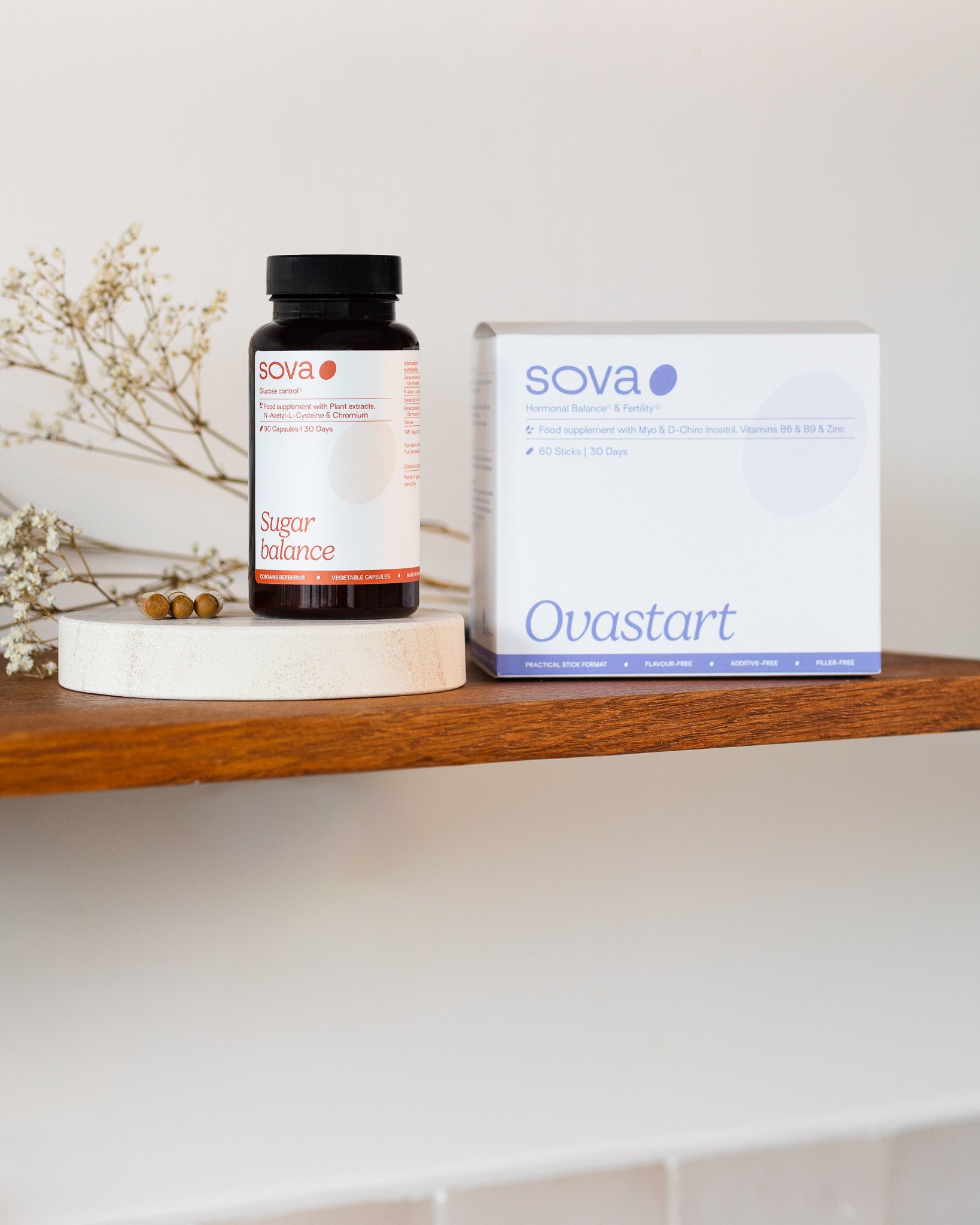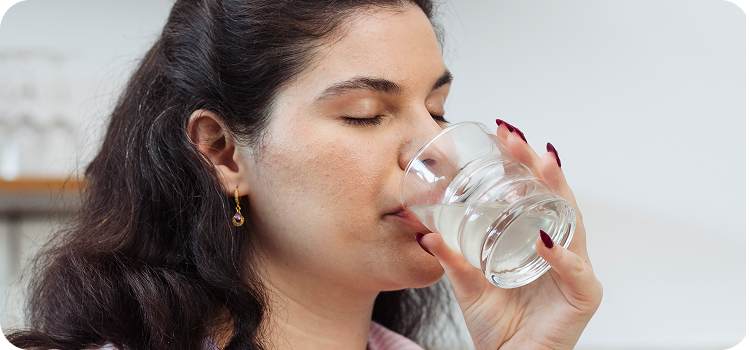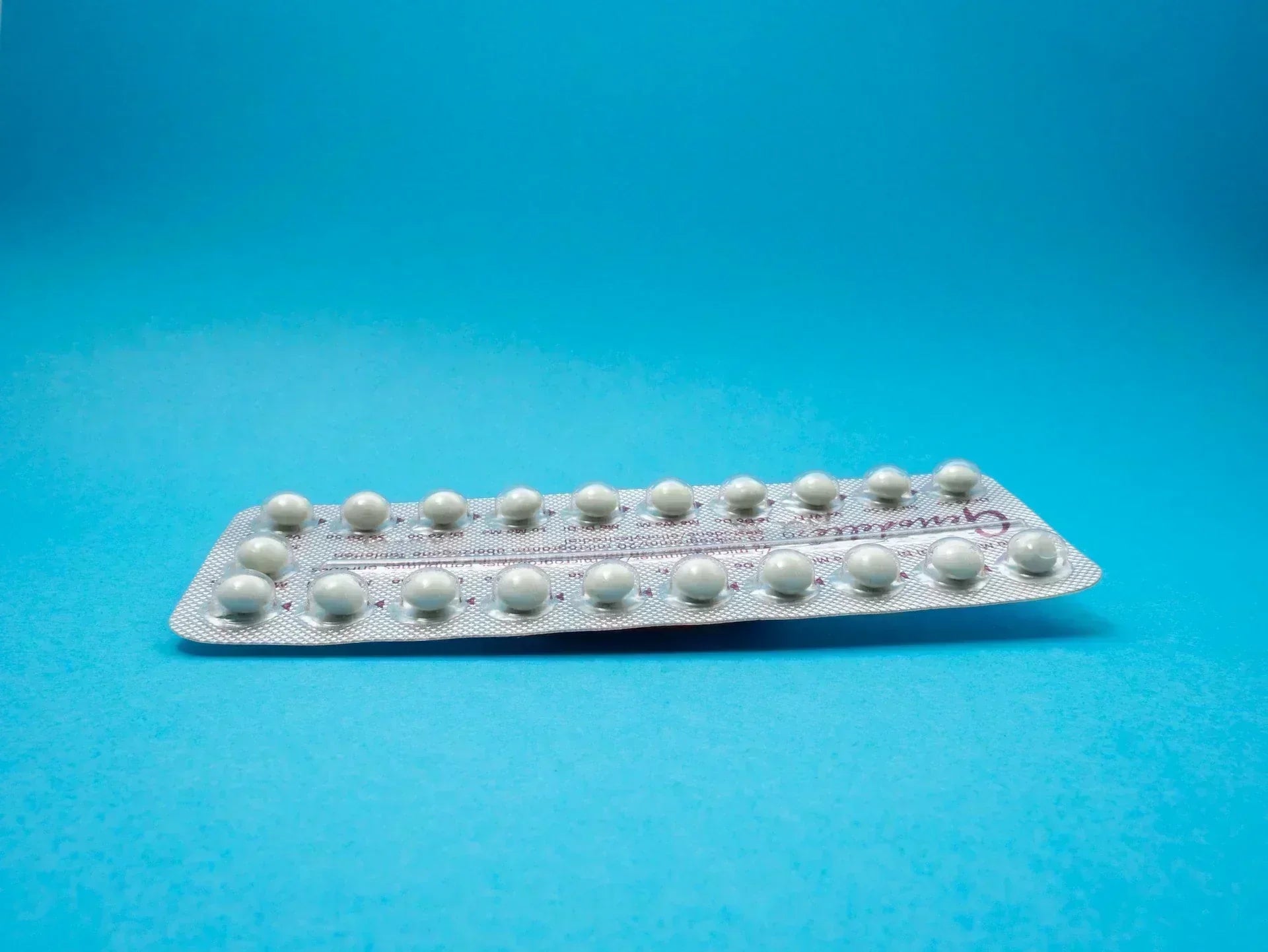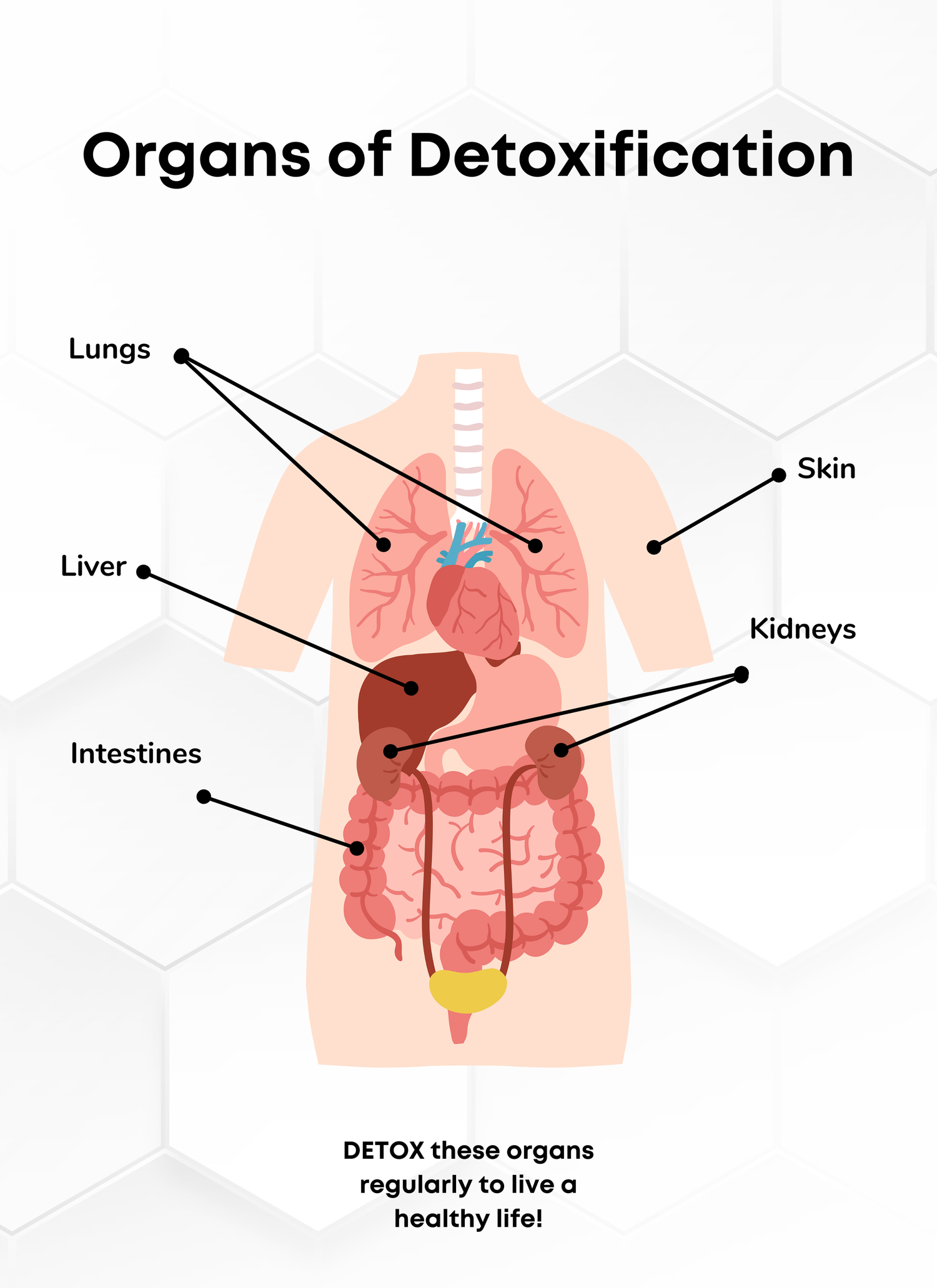Table of contents
Have you been diagnosed with PCOS right after stopping your birth control pill? Or are you experiencing symptoms similar to PCOS since stopping the pill? You might be dealing with post-pill PCOS, especially if you had no issues before starting hormonal contraception.
So, what is post-pill PCOS? How can you identify it, and most importantly, how can you alleviate the symptoms? That’s what we’ll explore in this article.
How Does Stopping the Pill Lead to PCOS?
Birth control pills and other hormonal contraceptives (hormonal IUD, implant) contain synthetic hormones similar to estrogen and progesterone. These contraceptives aim to block ovulation to prevent pregnancy. When taking the pill, the menstrual cycle is essentially shut down since ovulation, the key event of the cycle, is absent.
Hormonal contraceptives are often used long-term, sometimes for over 10 years, so your body needs time to restart. This means eliminating synthetic hormones, producing natural hormones, and resuming ovulation.
Stopping your contraception causes a slight hormonal imbalance, which is normal since your body has to relearn how to function without synthetic hormones. For some, ovulation and menstruation will return quickly, but for others, it can take months or even years.
For some, ovulation and menstruation may return quickly, after 2 or 3 cycles, but for others, it can take longer; between 6 and 12 cycles.
This can result in long, irregular cycles and an accumulation of follicles in the ovaries due to the absence of ovulation. Your body may also secrete more androgens for a few months while it regains balance.
The accumulation of follicles in the ovaries and high androgen levels are two specific symptoms of PCOS. Post-pill PCOS can be mistaken for long-term PCOS.
👉 Curious about the different types of PCOS? Read our guide to learn how to distinguish between them.
Post-Pill PCOS: How to Identify It?
To identify your type of PCOS, you need a diagnosis that includes hormonal blood work. Remember, an ovarian ultrasound alone cannot determine if you have polycystic ovary syndrome.
Indeed, it’s the hormonal assessment and symptom evaluation that establish the diagnosis.
Regarding post-pill PCOS, you might have it if you meet the following criteria:
-
You have irregular cycles and high androgen levels (testosterone, DHEA, Delta 4 androstenedione).
-
You do not have insulin resistance.
-
You had no issues before stopping your contraceptive (acne, excessive hair growth, irregular cycles).
If you don’t recognize yourself in these criteria, don’t hesitate to read our article on the 4 types of PCOS. You might have a more “classic” form of PCOS.
Sometimes the only imbalance observed is elevated LH levels. If LH levels are high, it both prevents ovarian follicles from developing and stimulates the production of androgens.
Reminder: LH is the hormone secreted by the brain that triggers ovulation. It peaks at ovulation and then decreases. When it remains elevated throughout the cycle, ovulation doesn’t occur. This is usually a sign of ovarian insufficiency. In simple terms, your ovaries haven’t yet started secreting hormones again. On a larger scale, it also means that the communication between your ovaries and your brain hasn’t been reestablished yet.
To summarize, these symptoms indicate a temporary state related to stopping your hormonal contraception.Therefore, if this imbalance is temporary, the first thing to do is to give yourself time. Then, you can follow the steps below to help your body eliminate synthetic hormones, encourage ovulation, and regain your hormonal balance more quickly.
Steps to Improve Post-Pill PCOS Symptoms
Here are some concrete solutions to support your body during the post-pill phase.
Help Your Body Eliminate Synthetic Hormones
Support Your Liver
One of its functions is to process the body's waste. Therefor it is the one who manages and eliminates synthetic hormones while also participating in hormone production. Thus, you need to take special care of it during this post-pill period.
Some Good Hygiene Practices
- Cut down on alcohol consumption.
- Cut down on smoking.
- Cut down on fried foods, processed foods, and sugary products.
- Take on a predominantly anti-inflammatory diet.
- Eat foods like black radish, garlic, lemon, cabbage, leafy greens, beets, turmeric, and ginger.
- Start your day with a ginger, rosemary, or peppermint tea.
- Take supplements like desmodium, milk thistle, or rosemary to eliminate toxins more deeply. Avoid black radish and artichoke, which require too much energy from your body, already quite busy dealing with loads in this post-pill period.
For those looking for additional support, Sugar Balance contains NAC and other key ingredients that help the body’s natural detox processes and support healthy blood sugar levels — both important when your liver is processing leftover synthetic hormones. For a more comprehensive option, the Balance Bundle combines Ovastart + Sugar Balance for a full hormonal reset approach.
Stimulate your excreting organs (emunctories), the body’s waste disposal units
Emunctories are organs that eliminate the body’s waste to maintain internal balance: liver, intestines, kidneys, lungs, and the skin.
The 5 emunctories:
Some habits to incorporate:
- Identify and cut down foods you’re sensitive to, for a few weeks.
- Drink 2 liters of water daily.
- Engage in regular physical activity to stimulate digestion, sweating, and breathing.
- Practice stomach vacuum exercises, twists, and diaphragmatic breathing to calm yourself and improve digestion.
- Add 1 to 2 teaspoons of psyllium to your yogurt or applesauce to regulate your bowel movements.
- Practice dry brushing, get massages, or lymphatic drainage to stimulate your skin and blood circulation.
Encourage ovulation
Learn to manage your stress and emotions
Mental or physical stress disrupts ovulation. As we’ve seen, the ovaries and brain communicate closely to create and trigger ovulation.
Some habits to incorporate:
- Take time for things that make you happy.
- Disconnect from social media.
- Get support from a mental health professional.
- Work with a wellness professional: a sophrologist or hypnotherapist.
- Favour gentle activities: yoga, walking, swimming, Pilates, etc.
- Cut down on caffeine and stimulants.
- Practice heart coherence exercises.
Want to learn more? Discover our article dedicated to managing PCOS-related stress.
Improve the quality of your sleep
To ovulate, your body needs energy. Your body primarily activates recovery mechanisms at night, so it’s important to get quality sleep: falling asleep easily, no awakenings, and waking up refreshed.
Some habits to incorporate:
- Eat at least 2 hours before bedtime.
- Have a light dinner (if digestion interferes with sleep).
- Avoid intense physical activity after 6 PM.
- Avoid screens, 1 hour before bedtime.
- Drink a relaxing herbal tea: verbena, chamomile, valerian, lavender, lemon balm.
- Engage in relaxing activities before bedtime: yoga, meditation, stretching, breathing exercises, reading, or crafts.
- Fine-tune your diet
To learn more about sleep and PCOS, head out to our dedicated article.
Fine-tune your diet
Long-term use of the pill causes vitamin and mineral deficiencies that need to be addressed to regain hormonal balance. Food is also your primary energy source, which allows your body to ovulate.
Some habits to adopt:
- Eat enough carbohydrates: cereals, potatoes, sweet potatoes, squash. One serving per meal.
- Eat enough protein: about 1g per kilogram of body weight from animal or plant sources. Example: 65 kg = 65 g of protein per day.
- Prioritize fats rich in anti-inflammatory omega-3s: fatty fish, eggs, nuts, canola, flax, and walnut oils.
- Consult a mental health professional if you suffer from eating disorders.
- Consider supplementation with multivitamins, magnesium bisglycinate, or zinc picolinate.
If you need more guidance, feel free to read our article on the right diet for PCOS.
A Look at vitamin and mineral loss
The pill must be processed by your body to be assimilated and then eliminated. To do this, your body needs to use vitamins and minerals that weren’t intended for this purpose. Their use is therefore diverted from their primary role: ensuring proper body functions. This extra work required by the pill forces your body to draw on its nutrient reserves, eventually depleting them. Gynaecologist Bérengère Arnal-Morvan estimates that 80% of women are deficient after six months of taking the pill.
If you stopped the pill to have a child, you must supplement with vitamin B9 to prevent malformation, miscarriage, and premature birth. It also helps in producing DNA, red blood cells, and the synthesis of various amino acids, which contribute to regulating your cycle.
Zinc deficiency can cause irregular cycles, increased hair growth and premenstrual syndrome. These symptoms are common in women with PCOS. Zinc is an anti-inflammatory and anti-androgen trace element, making it an excellent ally to promote ovulation, progesterone production, and regulate the menstrual cycle.
Supplementation combining zinc and vitamin B9 is sometimes enough to regulate cycles and shorten the duration of post-pill PCOS.
Supplements like Ovastart combine key nutrients such as active folate, zinc, and vitamin B6 — exactly the nutrients often depleted by long-term pill use — to help support ovulation and menstrual balance after stopping hormonal contraception.
SOVA was created by two sisters with PCOS who wanted products that truly worked. Our formulas are developed in-house with women’s health and micronutrition experts, using ingredients backed by clinical studies and compliant with European regulations.
- Built by women with PCOS, we know the reality of the symptoms.
- Clinically studied, high-quality ingredients, including patented forms like Quatrefolic® and an optimal Myo-/D-Chiro Inositol ratio.
- Holistic support for hormonal balance, metabolic health, inflammation, mood and cycle regulation.
- Transparent, science-led formulas with no unnecessary additives.

